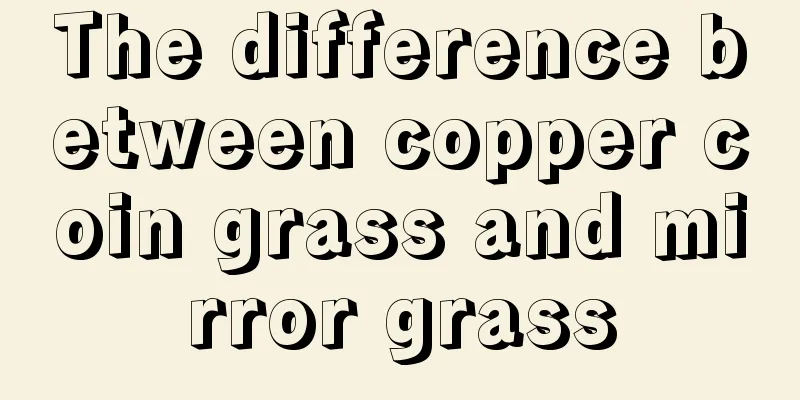The difference between copper coin grass and mirror grass

1. Different appearanceThe stems of the pennywort are thin and long, and the leaves are round shield-shaped. The back is covered with dense T-shaped hairs and the entire edge. However, its leaves are small, with shallowly cracked veins. If you rub them with your hands, they will emit a celery scent. Yellow-green flowers bloom in summer and autumn. Mirror grass is a perennial succulent herb with dark green leaves that are plump and shiny. Its round and plump appearance is very attractive. There is a golden round dot at the junction of the petiole. The veins naturally radiate from the center to the surrounding areas. From a distance, it looks like an ancient mirror. 2. Different growth environmentsThe pennywort prefers a humid environment and can survive both in water and on land. It mostly grows in wetlands or in artificially maintained aquariums. It is not suitable to grow in direct sunlight, and its need for sunlight can be met in semi-sunlight or shade. Mirror grass is suitable for growing in a warm and humid environment. It likes loose, well-drained loam rich in organic matter. It can only survive in semi-shaded soil, unlike pennywort which can grow both in water and on land. Its growth temperature is between sixteen and twenty degrees Celsius. If it is lower than minus four degrees Celsius, chilling damage will occur. 3. Different valuesThe pennywort is non-toxic and the whole leaf can be used as medicine. It has the effects of clearing heat and promoting diuresis, clearing away heat and detoxifying, and reducing swelling. It can also be used for damp-heat jaundice, heatstroke diarrhea, sand and blood stranguria, carbuncles, sores, and bruises. Mirror grass is not only an ornamental flower, but also has extremely high medicinal value. Its properties are "sweet and bitter" and "cool in nature". It can be used as a raw material for clearing away heat and detoxifying, removing blood stasis and reducing swelling. It is mainly used to treat erysipelas and is also significantly helpful for the recovery of fractures. |
<<: How to grow succulent mung beans
>>: Are coin grass and mushroom grass the same plant?
Recommend
Common diseases of trumpet creeper and their prevention and control methods
Botrytis cinerea Symptoms Gray mold often occurs ...
Should I use a large or small pot for the lantern flower?
Should I use a large or small pot for the lantern...
How to water Hawaiian coconut palms
Hawaiian Coconut Watering Tips Hawaiian coconut r...
How long does it take for Allen leaf cuttings to germinate
How long does it take for Allen leaf cuttings to ...
How to prune the Chinese crabapple
When to prune the Chinese crabapple The pruning o...
The flowers bloom for 5 months, and it’s a flowering machine with a very long standby time. Every family must have one!
Four Seasons Orchid Four-season orchid, also know...
This flower is 100 times more beautiful than the Chlorophytum comosum and it does not wither all year round. Even the great people are growing it now!
Leafhopper Arrowroot The leaves of the leafhopper...
What to do if daffodil roots rot
1. Treatment of soil-cultured root rot 1. Trim of...
Cyclamen cultivation methods and precautions
1. Breeding environment 1. Soil: Suitable for loo...
How to grow wisteria in autumn
1. Appropriate lighting Wisteria is a light-lovin...
Advantages and disadvantages of Catalina rose
When the Catalina rose first blooms, it is shaped...
When is the best time to prune cinnabar plum blossoms?
The effect of pruning cinnabar plum blossom Pruni...
How to grow Christmas cactus
1. Breeding methods: 1. Soil It is best to use br...
How to grow the peace lily tree to make it flourish
1. Temperature The peace lily is not very cold-re...
When should Daya oranges be bagged?
The role of bagging for Daya oranges Because Daya...









